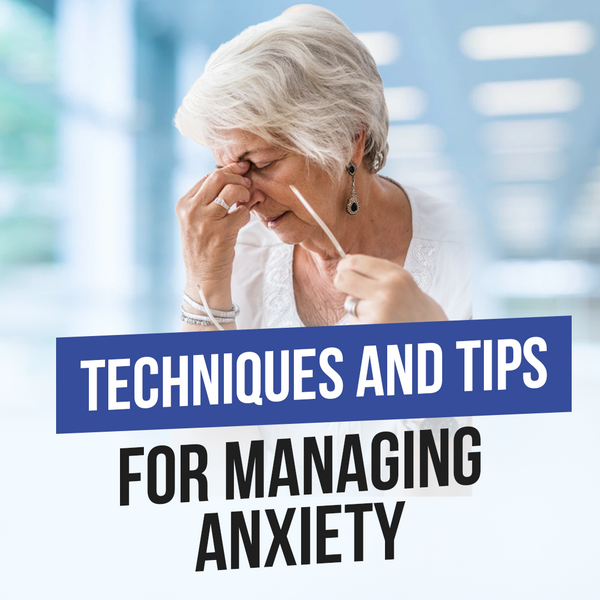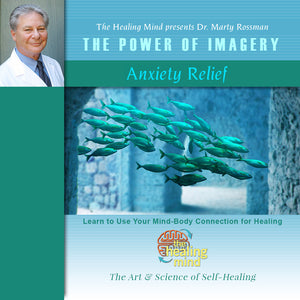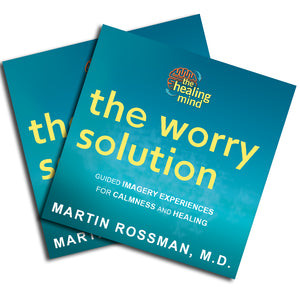Anxiety is a common experience that everyone goes through at some point in life. When anxiety becomes overwhelming, it can impact your daily life, leading to difficulties in work, relationships, and personal life. Coping strategies for anxiety are essential in managing the symptoms and improving overall wellbeing.
Here are some effective techniques and tips for managing anxiety:
- Breathing exercises: Controlled breathing is an effective technique for calming the mind and reducing physical symptoms of anxiety. Deep breathing exercises can be performed anywhere, at any time.
Practice: You can start by inhaling slowly through your nose for 4 seconds, hold your breath for 2 seconds, and exhale slowly through your mouth for 6 seconds. Repeat the cycle for a few minutes, focusing on your breath and letting go of any thoughts or worries.
- Mindfulness: Mindfulness is a technique that involves being present in the moment without judgment. It helps to reduce stress and anxiety by allowing you to let go of worries about the past or future.
Practice: One way to practice mindfulness is to focus on your food while you are eating. To do this, start by taking a few deep breaths and bringing your attention to the present moment. As you begin to eat, take notice of the colors, textures, and smells of your food. Pay attention to the sensations in your mouth as you chew and swallow. Try to savor each bite and be fully present with the experience of eating.
- Physical activity: Regular exercise is a great way to reduce anxiety symptoms. It releases endorphins, which promote feelings of happiness and well-being while reducing stress hormones. Find a form of exercise that you enjoy and make it a regular part of your routine. Walking, running, swimming, or yoga are all great options.
Practice: Set a goal to walk for at least 30 minutes five days a week and find a buddy to practice with. You can use the Health App on your phone to track your results.
- Progressive muscle relaxation: Progressive muscle relaxation is a technique that involves relaxing specific muscle groups in your body. It helps to reduce physical tension associated with anxiety and promote relaxation.
Practice: To try this exercise, start by tensing your toes and holding for 5 seconds, then release the tension and relax for 10 seconds. Move up your body, tensing and relaxing different muscle groups such as your calves, thighs, stomach, shoulders, and jaw.
- Self-care: Practicing good self-care can help to reduce anxiety and promote overall well-being. Ensure that you get enough sleep, eat a balanced diet, and engage in activities that bring you joy and fulfillment. Self-care can also involve creating a calming environment at home by reducing noise and clutter and spending time in nature.
Practice: Think of an activity that brings you pure joy. You may even consider hobbies from 10-20 years ago. Schedule at least 2 hours of "you-time" each week to engage in this activity and prioritize self-care.
- Avoiding triggers: Identifying and avoiding triggers that can cause anxiety is an important part of managing symptoms. This might mean avoiding certain situations or people, or making changes to your environment or routine. It's also essential to practice assertiveness and setting boundaries to avoid over-committing and overwhelming yourself.
Practice: Take a pen and paper and get comfortable in a quiet place where you know you won't be disturbed. Think about the situations and people that have triggered your anxiety in the past few months and write them down. Consider how you can avoid these triggers, but if it seems impossible, make sure to practice breathing techniques or guided imagery after being in contact with them.
- Guided imagery: Another effective technique for coping with anxiety involves using mental images to promote relaxation and reduce anxiety symptoms. Guided imagery can be done alone or with a trained professional who can guide you through the process. The Healing Mind provides a number of guided imagery resources for anxiety relief.
Practice: Find a comfortable position in a quiet place, turn on the guided imagery, and allow Dr. Marty's soothing voice to guide you into a state of deep, calming relaxation.
Anxiety can be a challenging experience, but it is possible to manage the symptoms effectively with the right tools and support. Practicing breathing exercises, mindfulness, physical activity, progressive muscle relaxation, self-care, avoiding triggers, and using guided imagery are all practical coping strategies for managing anxiety. It's essential to find what works best for you and make it a regular part of your routine to reduce anxiety and improve overall well-being.
"Anxiety is a combination of worry - the fearful thoughts we have about the future, and stress, the physiological reaction we have in our bodies. If you want to learn how to manage anxiety, it's best to use approaches that manage both the mind and body."
Emma McAdam, Therapy in a Nutshell



